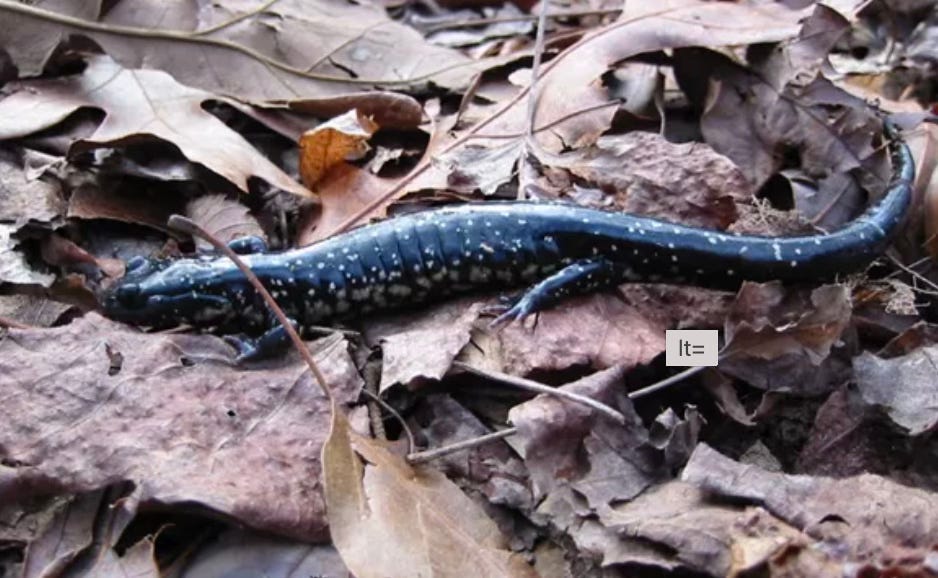A year ago when I started The Everyday Scientist newsletter, I found a bright spot in our world: community science. You know how sometimes you feel the weight of the world on your shoulders? For me doing an outdoor project to help researchers helps me too. I love being a detective for the planet, solving mysteries and making a difference right in my own backyard.
Community science isn’t just about bugs and birds (although they’re important too). It’s about people—us—coming together to make a difference. As our neighborhoods get hotter and our natural spaces dwindle, there’s a way for us to lend a hand. We may not be scientists, but we can be the boots on the ground, the eyes and ears that help fill in the gaps.
So, what exactly does it mean to be a community scientist? It’s simple, really. We ask questions, we gather data, and we make a difference. From documenting ladybugs to tracking sea turtles, there’s something for everyone. And it’s not just a recent trend—community science has been around since the 19th century, bringing people together in the name of discovery. The first-ever community science project was focused on—-drumroll please and make it loud to get us ready for spring—cicadas. (I’ll write more about our upcoming Cicada Spring soon.)
The lists, the salamanders, the moms
1. Some science projects for you.
I’ve listed seven areas/categories of projects that are progress or coming up soon. Choose one and join me in the adventure. Also, let’s keep the conversation going—the world needs all the help it can get. Find your own activities by searching for “citizen science,” or “community science,” or even “nature volunteers.”
A Million Acts of Science, Sci-Starter. An assortment of efforts and a big push for April 2024.
Budburst, documenting springtime by looking at plants in your area.
Cicada Safari, document the emerging broods in your area.
Atlanta City Nature Challenge, coming up soon in April. They have these in many cities across the U.S.
iNaturalist, This app is yours for doing community science anytime, anywhere. My favorite of all apps.
Eclipses and Citizen Science, a NASA effort that has several subparts. The BIG solar eclipse is coming up soon, April. 8
Firefly Community Science, a Xerces program.
2. Some salamanders for you.
Today I got started on one of my many scheduled activities associated with this year’s Atlanta Science Festival. Today was Salamander Stroll day! The weather has been rainy, but it wasn’t actively raining while we bioblitzed for salamanders. I learned so much about the Clyde Shepherd Nature Preserve and a program associated with it, Applied Community Ecology.
And, of course I learned about the star of our day, the salamanders, which have been described as a cross between a frog and a lizard. They like to hang out under damp logs, so we spent a lot of time this morning rolling logs to peek under them.
“You want to roll the log toward you so that anything under there—and copperheads have been seen around here—has a chance to escape away from you,” our leaders told us.
Handy, how that will also give us a chance to escape away too, I thought.
Click on the image for a one-minute video. You may need to turn volume on once it is going.
Did you catch me? At first, I rolled it wrong.

3. Some science moms for you.
I’m a big fan of the Science Moms and loved the interview they gave on the MCJ Collective podcast recently. Here’s the podcast link, and I know you have a lot to listen to, but even if you listen through around the first 20 minutes, you may pick up some of their ideas and energy.
This direct quote from the transcript is something they hope older generations will STOP saying to younger generations:
"We've screwed up the planet. It's all up to your generation. It's all up to you. It's all in your hands."
The Science Moms try to make climate science easier to understand and have a strong bias for action. I love it! This idea of a bias for action is embedded in many places, and I definitely see it having a home with the community scientists of the world and with my work here in The Everyday Scientist.
Let’s lend a hand!






I agree the older generation has to stop telling the younger generation we screwed it up and now it’s up to you.